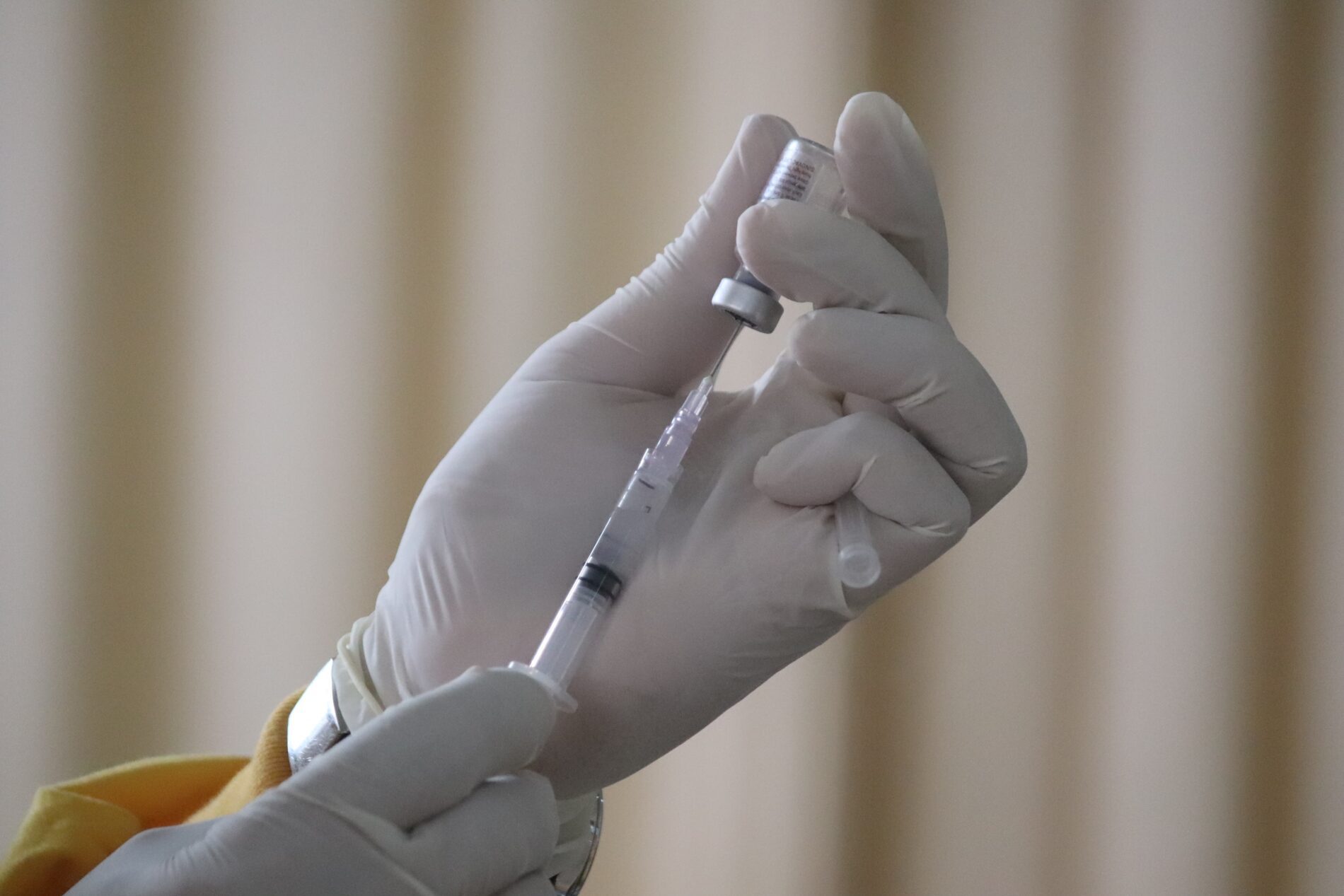
 Sabrina Macklai is an IPilogue Senior Editor and a 2L JD Candidate at the University of Toronto Faculty of Law.
Sabrina Macklai is an IPilogue Senior Editor and a 2L JD Candidate at the University of Toronto Faculty of Law.
M. Imtiaz Karamat is an IP Osgoode Alumnus and Licensed Lawyer in Ontario.
The COVID-19 pandemic has drastically changed our day-to-day lives with new public health guidelines and restrictions that impact everything, from how we work to how we move around. In a further attempt to curb the spread of COVID-19, several countries are considering implementing forms of vaccine-based identification as a pre-requisite for accessing certain services or facilitating travel. These so-called “vaccine passports” are a form of proof of vaccination—one which many worry may constitute a serious violation of privacy, introducing more harm than good. As cases of the delta variant of COVID-19 rise, Canada and its provinces must decide whether the potential benefits of these passports warrant their implementation.
The Vaccine Passport Issue
While Canadians can prove their vaccination status in many ways, vaccine passports occupy a form that is set out and managed by an organizing entity and offer a consistent, verified means for individuals to prove their vaccination status. At first glance, vaccine passports do not appear drastically different from the immunization record cards most children receive during school. However, unlike traditional immunization records, these passports may have more profound consequences when combined with policies that restrict access to only those who are vaccinated.
Vaccine passports are being considered as a tool to limit the spread of COVID-19 infection by providing an easy method to verify the vaccination status of individuals before allowing them access to certain services and locations. Those in favour of the passports argue that vaccinated individuals have a significantly decreased risk of becoming infected with the COVID-19 virus and transmitting the infection to others. Therefore, they should be allowed to use a vaccine passport to exclusively access services and perform activities that unvaccinated individuals may be barred from.
The implementation of a domestic vaccine passport system has garnered significant debate in Canada. Although vaccine passports may have a serious and legitimate health purpose, officials must carefully consider their intrusion of individuals’ privacy and civil liberties before taking action. A recent joint statement by Federal, Provincial, and Territorial Privacy Commissioners (the Commissioners), highlighted that “a vaccine passport presumes that individuals will be required or requested to disclose personal health information – their vaccine/immunity status – in exchange for goods, services and/or access to certain premises or locations.” The disclosure of such sensitive information presents significant privacy risks and governments must develop and implement vaccine passports in compliance with applicable privacy laws and continuously assess the necessity, effectiveness, and proportionality of vaccine passports to justify their use. With such a high threshold, governing bodies are questioning whether enforcing a vaccine passport system is the correct course of action that will yield the most benefit.
Even with the Commissioners’ guidance, many are uncomfortable with mandatory vaccine passports, fearing that they will not only intrude privacy but further perpetuate inequalities. The idea of what may be considered a “necessary” infringement on individual rights has also garnered significant debate. Such debates have led to increasing polarization, especially against the backdrop of the threat of a potential fourth wave of COVID-19 in Canada.
Federal Response
On July 13, 2021, Prime Minister Justin Trudeau announced that the federal government will create an “internationally accepted proof of vaccination” to enable international travel, while provinces may create their own domestic vaccine passport regimes pursuant to their jurisdictional authority. According to Trudeau, his government plans to work with the international community to ensure that fully vaccinated Canadians are recognized globally as such. He also noted that his government will look to vaccines certified by the World Health Organization (WHO) to determine which would qualify for a vaccine passport. See the list of WHO-certified vaccines here.
To this end, on August 11, the Immigration Minister Marco Mendicino confirmed the pan-Canada vaccine passport program for international travel. According to Mendicino, the certificate will be the same across all provinces and will contain information on the individual’s COVID-19 vaccination history, the date they received the vaccine, the type of vaccine administered, and the location of administration. The passport will be available to all citizens, permanent residents, and temporary residents living in Canada who are fully vaccinated. The passport is set to be implemented early this fall.
Intergovernmental Affairs Minister Dominic LeBlanc added that although the federal passport is intended to enable international travel amongst Canadians, the federal government would be willing to work with provinces who so wish to use the passport as a domestic tool.
Provinces Diverge
The lack of strong federal oversight for implementing a domestic vaccine passport system gives the provinces the flexibility to decide based on their own internal policies. This has resulted in divergent views with the various governing bodies arriving at different conclusions on the matter.
The Government of Manitoba has already begun issuing immunization cards for residents who have two doses of the vaccine and are considered fully immunized. The province’s current public health orders allow fully immunized individuals to access certain services and enable businesses to ask for proof of immunization to ensure compliance. This proof of immunization may take the form of the Manitoba Digital Immunization Card (or its physical counterpart), which contains the first and last names of the cardholder and a QR code that can be scanned by others using the Manitoba Immunization Card app to display the cardholder’s immunization status. Apart from the above information, the card is stated to not provide any other health information.
Although Quebec was only entertaining the idea of its own vaccine passport system, Premier Legault announced on August 5th, 2021 that the provinces’ recent surge in new COVID-19 cases now makes it necessary to implement a province-wide passport system by September. The Government of Quebec has noted that access to certain non-essential services in places with high capacity and a high rate of contact, such as gyms and restaurants, will be restricted using vaccine passports. To access these areas, clients will need to be vaccinated and have a QR code to prove it. Government officials are currently testing smart phone applications that will display (for clients) and identify (for businesses) the QR codes. Those without a smart phone may print their QR code or request a paper version by mail. To ensure privacy, Quebec Health Minister Christian Dubé has said that the app used to identify clients’ QR codes is solely intended for reading purposes and does not collect any data.
Meanwhile, other provinces have strongly opposed the use of domestic vaccine passports. The government of Saskatchewan has firmly rejected the use of such a system, with Premier Scott Moe and the CEO of the Saskatchewan Health Authority, Scott Livingstone, stating that requesting proof of immunization may violate the province’s privacy laws, including the provinces’ Health Information Protection Act. The Premier of Alberta agrees with this notion, saying in a past interview that a passport program within the province would “…in principle contravene the Health Information Act and also possibly the Freedom of Information and Protection of Privacy Act.” A spokesperson for the premier also noted on August 5 that Alberta will not “be supporting the use of the government of Canada’s international travel credential for uses within Alberta’s borders.”
The Government of Ontario initially took a strong stance against implementing a vaccine passport program, with Premier Doug Ford and Chief Medical Officer of Health Dr. Kieran Moore both opposing the idea. However, experts predict that Ontario will eventually follow Quebec’s lead.
Businesses seeking to collect proof of vaccination information in provinces that do not have passport programs are left to navigate potential privacy pitfalls while developing their own passport system. Although the Commissioners say in their joint statement that proceeding under newly enacted public health laws that are specifically developed for vaccine passports would be easier, they suggest that businesses may implement a passport system under existing privacy legislation. Businesses outside of Quebec may find sufficient legal authority to collect vaccination information if they receive the individual’s consent. However, this consent must meet several conditions that may vary with the context of the business, including:
- Consent must be voluntary, meaningful, and based on clear language that describes the purpose to be achieved;
- The information must be necessary for the purpose;
- The purpose must be appropriate to a reasonable person in view of the circumstances; and
- Consent cannot be required as a condition of service.
Looking Forward
As countries across the globe rush to implement their versions of a vaccine passport system, vaccine passports may soon become the norm. Although Trudeau has remained firm that provinces may decide their domestic use of vaccine passports, Canadians in any province who wish to travel abroad will find it difficult to evade the vaccine passport program. Whether vaccine passports truly meet the threshold of necessity for their infringement on civil liberties remains up for debate. However, given their impending ubiquity, it is important that government agencies look to privacy experts like the Commissioners and heed their warnings when developing their own policies. While the COVID-19 pandemic has significantly disrupted our lives, our responses to the pandemic need not be unnecessarily harmful.

